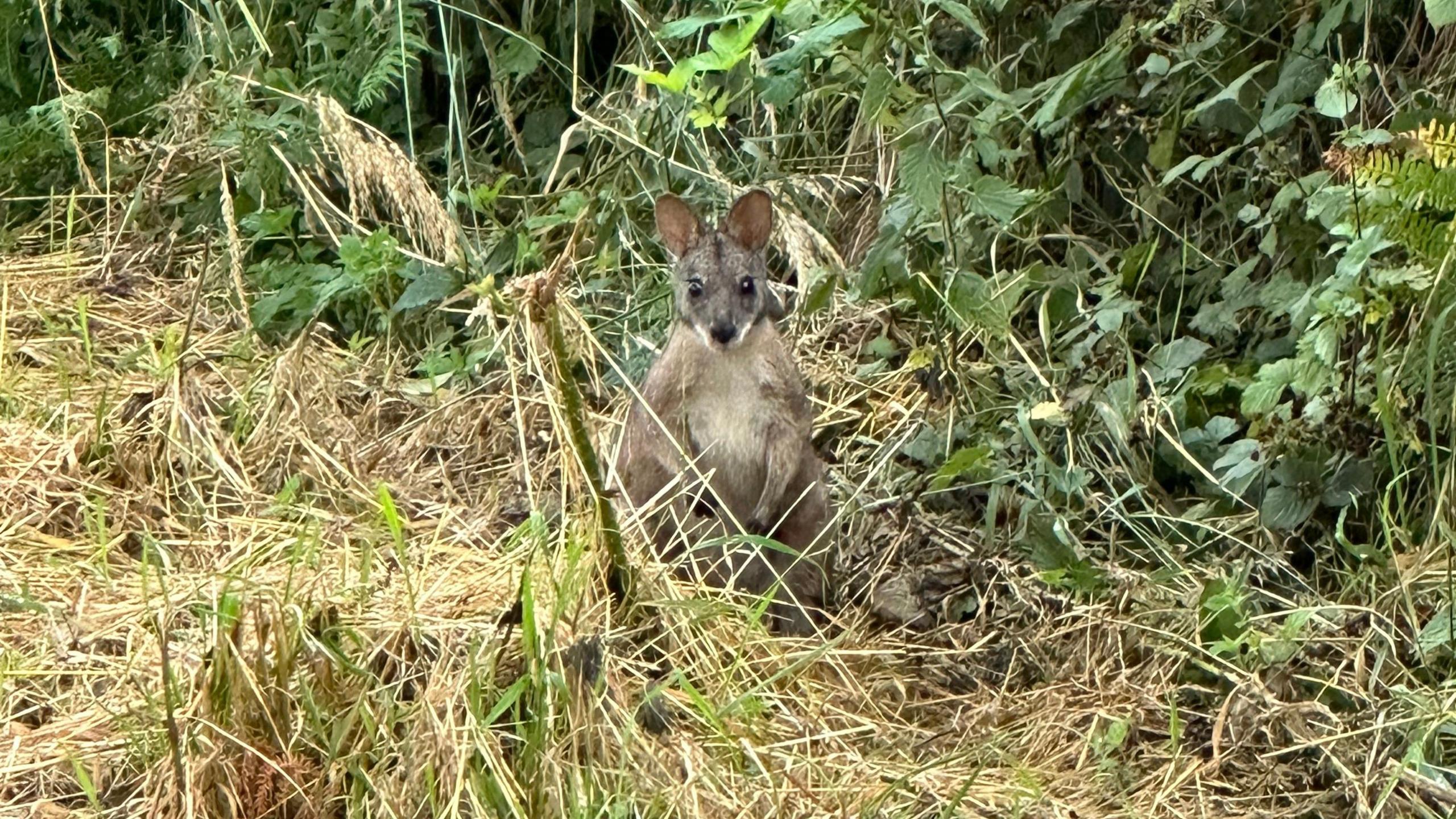How likely is a Nottinghamshire wallaby encounter?
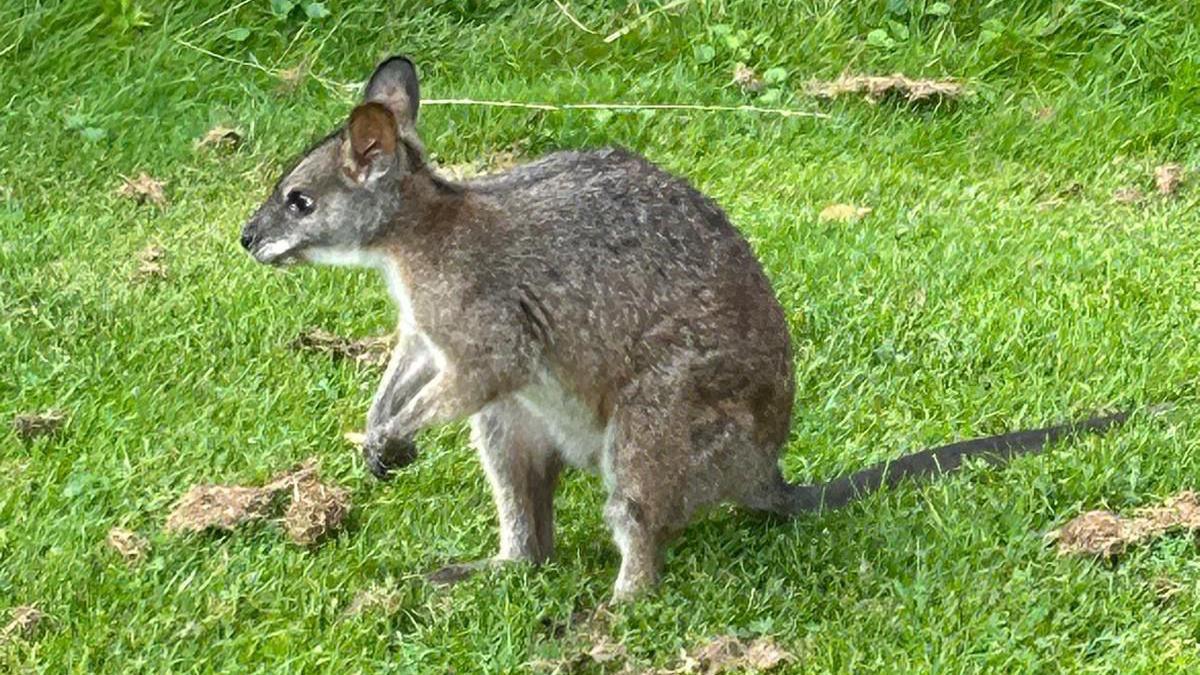
Wallabies - like this one seen on a Southwell golf course - are an increasingly common sight in Nottinghamshire
- Published
A wave of wallaby sightings across Nottinghamshire has caught the attention of wildlife watchers.
Since one of the animals - a native of Australia and New Guinea - was spotted in Calverton in July, there have been numerous sightings in the county.
With up to 20 miles between sightings this summer, Nottinghamshire Wildlife Trust believes there has to be multiple marsupials roaming around.
The group has called for the public to report any sightings so they can get a clearer picture.
Erin McDaid, from the trust, said the sightings were almost certainly red-necked wallabies.
But just how rare is it to have these animals on our doorstep - and should people be concerned?
What exactly are these animals?
Mr McDaid said the red-necked wallabies were small to medium-sized marsupials that weighed about 10kg when fully grown and "essentially look like a small kangaroo".
He said: "We're absolutely confident that they are red-necked wallabies, the most common species found here in the UK.
"There have been wild colonies in different parts of the UK for many years. There is a group on one of the islands on Loch Lomond, there are records of them on the edges of the Peak District towards Staffordshire, but there's some records that that population has died out.
"But we've certainly not had any records of them in or close to Nottinghamshire, so it was quite a surprise when we got the record in July."
Where have the Nottinghamshire wallabies come from?
Most wild wallabies on our shores are escapees, it is believed - and that's the likely cause of the Nottinghamshire sightings.
Mr McDaid said: "There is a history, over the last 100 years or so, of escapes from private collections, zoos and wildlife parks.
"Since the first record in Nottinghamshire near Calverton, we've now got 10 separate records logged and mapped for Nottinghamshire alone.
"We're pretty sure it's more than one escape from private collections, because we've got records as far apart as Bottesford and Bilsthorpe, which is about 20 miles, or about 14,000 hops."
Can wallabies survive a British winter and could they breed here?
While some colonies have died, it's thought red-necked wallabies are capable of surviving in our climate.
Mr McDaid said: "They could become established, but obviously you would need numbers of wallabies to be loose in the wild, and to meet up with each other.
"That's obviously not an ideal situation."
What is the impact on British wildlife?
Mr McDaid said above and beyond wallabies, non-native species were capable of huge impacts on the environment.
In the UK, he said they caused "billions of pounds worth of problems within the economy".
He added: "They are herbivores, so they'll be eating grasses and possibly the bark of small trees, they could have a grazing impact competing with other wildlife such as hares, which are under pressure."
But the trust is mainly concerned for the welfare of the wallabies themselves, with them not being acclimatised to the Nottinghamshire climate.
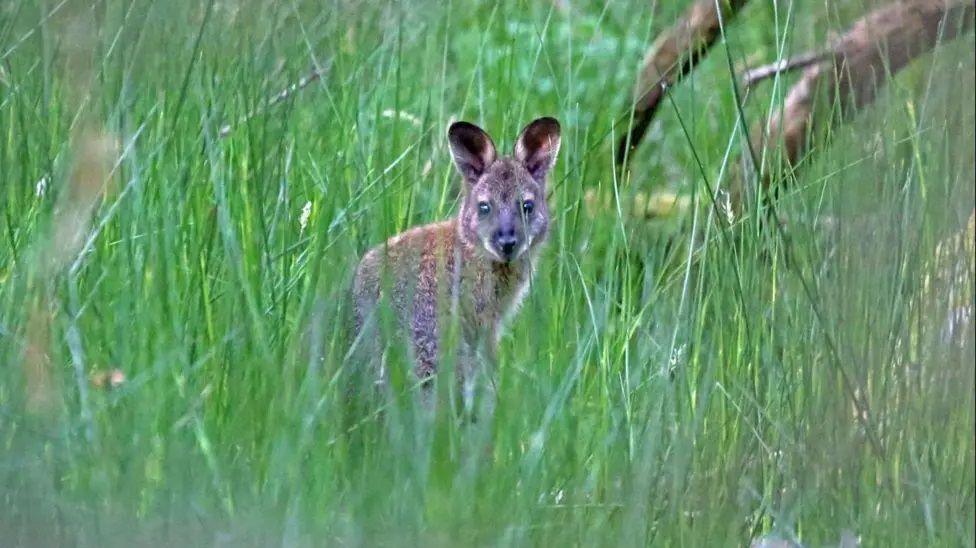
Wallabies are most often found in the wild in the UK because they have escaped from captivity
Will they come into contact with humans and are they dangerous?
Wallabies are herbivores and unlikely to be a problem for people, but it is possible they could head into our towns and villages.
Mr McDaid said: "Species like muntjac deer which is another non-native species, are now often spotted in and around urban areas, particularly in areas like cemeteries.
"So it is possible, but we hope not, particularly for the wallabies' sake.
"I wouldn't consider them a threat. They're much more likely to be frightened of people - although some of the ones over the Calverton area are obviously not bothered, because they've been seen happily hopping around!"
What should people do if they spot one?
If people do stumble across a wallaby in the wild, they are asked to report it.
The trust would like people to take a picture or video and contact them,, external not just about the non-native wallabies but other species too.
It helps build a better picture of what's happening in the county.
Mr McDaid said: "Until the summer, we were blissfully unaware that we had wallabies in our county.
"By giving as much detail as possible, we can then map the situation. And we're also using the interest in the wallabies to encourage people to send in records of other wildlife - it's what we call citizen science.
"It is hugely important, helps build a picture of our native species, and helps us track impacts such as climate change or the impact of non-native species."
Get in touch
Tell us which stories we should cover in Nottingham
Follow BBC Nottingham on Facebook, external, on X, external, or on Instagram, external. Send your story ideas to eastmidsnews@bbc.co.uk, external or via WhatsApp, external on 0808 100 2210.
Related topics
- Published2 October 2024
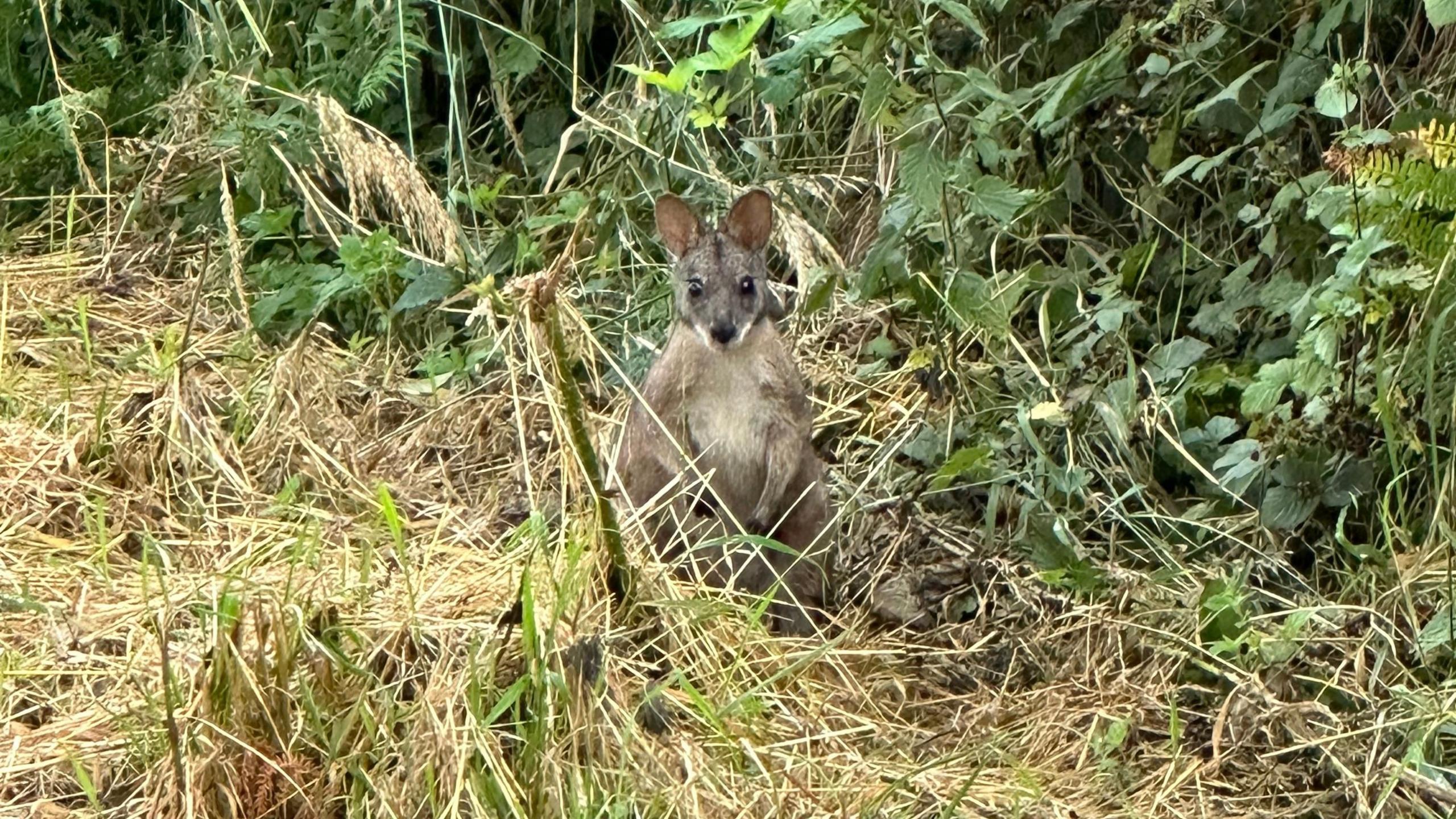
- Published7 August 2024
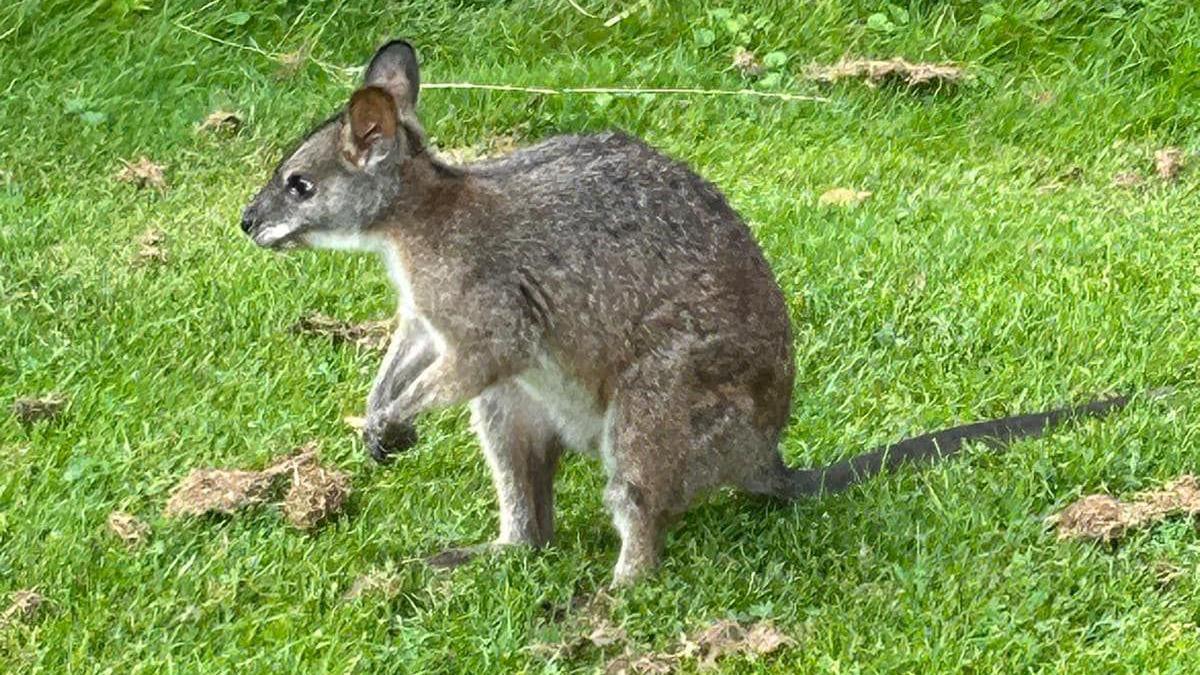
- Published30 July 2024
